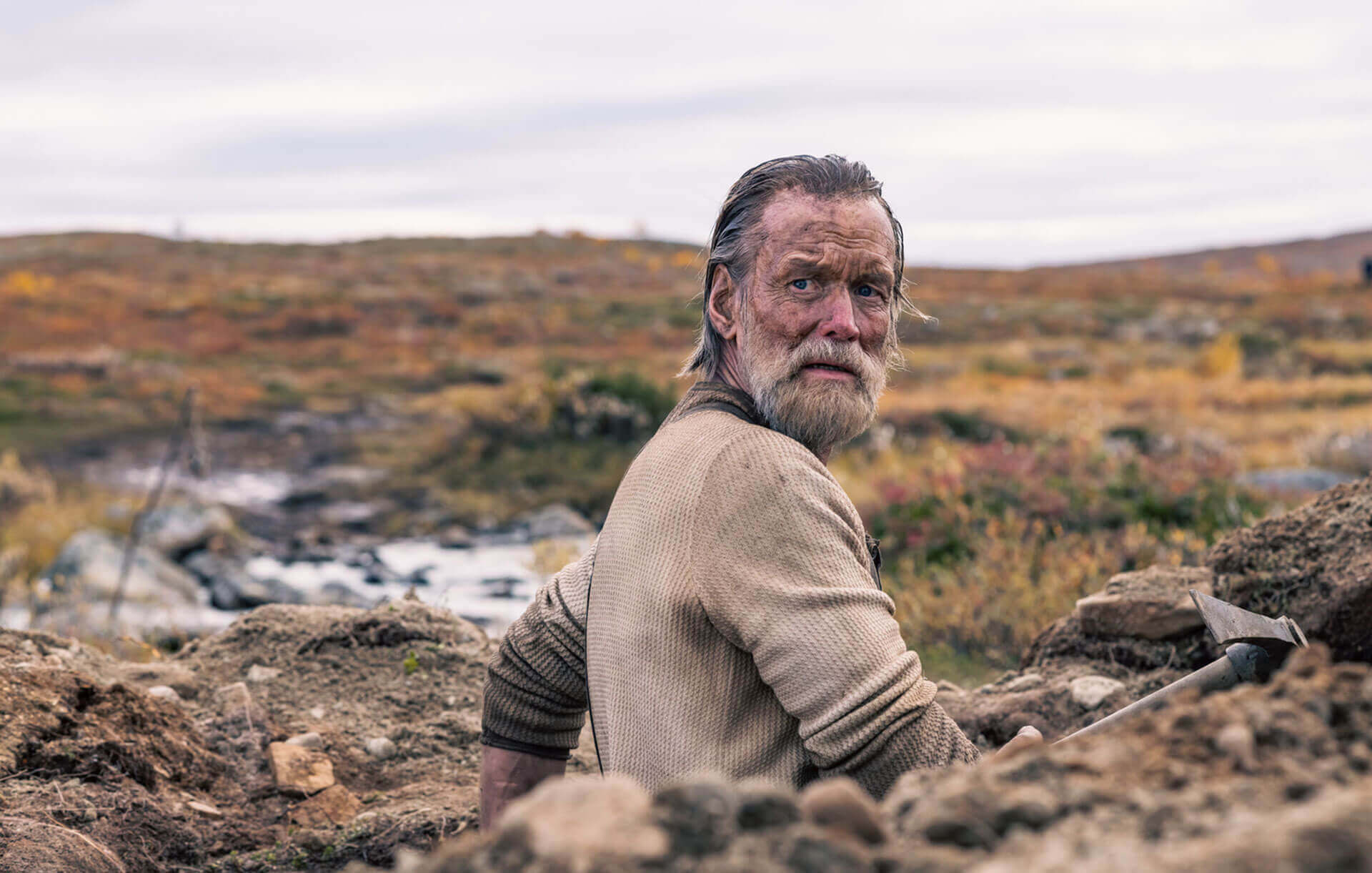A new Nazi revenge film from Finland is called ‘Sisu’ – is that Finnish for ‘chutzpah’?
The movie glosses over Finland’s complicated World War II history — but that shouldn’t keep you away

Jorma Tommila in Sisu. Photo by Lionsgate
At the start of the Nazi bloodletting that is Jalmari Helander’s Sisu, we’re presented with a working definition of the film’s untranslatable title: a “white-knuckled form of courage and unimaginable determination in the face of overwhelming odds.” Sounds a bit like chutzpah, nu?
Overwhelming odds, which in the film means the insane resilience of a Finnish commando-turned-gold prospector, Aatami Korpi, who lost everything and so has nothing left to lose, is a good way to describe the unique situation of the Finns in World War II. Finland was a singular country, fighting three different wars from 1939 to 1945 and maintaining its autonomy throughout, even as it switched teams.
The first war, in which Korpi fought to the tune of over 300 Red Army body bags, was the Winter War, where Finns battled solo against the invading Soviets.
The second, which Korpi may have sat out, was the Continuation War, where Finns formed an alliance with the Nazis to fight Soviet aggression, but kept their democracy intact.
As chronicled in John B. Simon’s Strangers in a Stranger Land, this arrangement produced a reality where Jewish Finnish citizens were fighting on the same side as the Germans and, in the case of some German or Yiddish-speaking troops, had direct contact with the Wehrmacht as interpreters. While de facto comrades with the Nazis, around 400 Jews served and even maintained a portable field synagogue, from which they conducted services, sometimes just a short distance away from German troops.
The Finns didn’t give up their Jews — despite Nazi pressure. But they did hand over eight Jewish refugees and around 500 Jewish prisoners of war from the Red Army to the Gestapo. An investigation into the POWs’ fate began in the 2000s, and in 2019, a report found that Finnish soldiers participated in the mass murder of Jews in Ukraine and the Caucasus when they were still allied with the Germans. (Israeli-Finnish researcher Serah Beizer has a good breakdown of this complicated history, including the antisemitism of some prominent right-wing Finns before and during the war.)
But by the time we meet Korpi, he’s found a rich vein of gold in Lapland’s sparse and beautiful wilderness and it’s the middle of the Lapland War. Nazis are now the enemy (and want his gold) and we needn’t feel conflicted as they explode on land mines or are dropped out of bomb bay doors Slim Pickens-style. There’s no love lost between Korpi and the Nazi unit he encounters on his way home — just a lot of lost limbs.
Describing Helander’s film, a hyper-violent blend of Rambo, Buster Scruggs, Mad Max: Fury Road and Inglorious Basterds (he makes use of chapter titles), it’s hard not to reduce the plot to its most memorable maimings.
As Korpi, Jorma Tommila is a laconic (nearly nonverbal), one-man killing machine, as capable panning for gold as fishing shrapnel from his body. His goal is straightforward: to cash in the gold and, if he can, save some young, captured comfort women from the back of the Nazi convoy. As advertised in the trailers, Korpi’s dog (a Bedlington Terrier) survives, but don’t get too attached to his horse.
Given Finland’s history as a wartime anomaly — a partner of Germany, and later a scorched earth victim — one might expect the film to linger longer in moral dilemmas. Given that Finland’s films don’t often get international releases, it’s a missed opportunity for a fascinating history lesson.
But, then again, not every World War II movie needs to be The Sorrow and the Pity. Sometimes it’s nice to tune into an uncomplicated bloodbath with irredeemable bad guys. Because, to paraphrase Nicole Kidman, we need that, that indescribable feeling we get when an SS recruit is decapitated by a Panzer tank.
Maybe the feeling’s not indescribable — the Finns probably have a word for it.






















